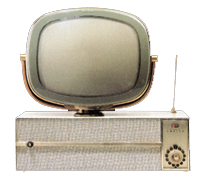The Federal Communications Commission has begun to benchmark Internet service speeds across the United States to allow consumer to compare the real world performance of their ISP with its advertised speeds. I’d like to see some action.
The program is under the aegis of the National Broadband Plan, which was created with funding from the American Recovery and Reinvestment Act of 2009 to accelerate broadband deployment in the United States. The FCC is gathering data down to the level of home address.
“The FCC’s new digital tools will arm users with real-time information about their broadband connection and the agency with useful data about service across the country,” FCC Chairman Julius Genachowski said in a statement to Reuters. The benchmarks will be combined with other data and presented to Congress as part of the agency’s broadband proposal.
Consumers may visit the agency’s Broadband.gov Web page to run the rest from their PCs or download the FCC Broadband Test app for Android and the iPhone. (When I ran the test, a script froze Firefox 3.6 on my Mac to the point where I had to manually kill the process, but Safari worked without a hitch.)
The Broadband.gov test, which is powered by Ookla Net Metrics, mirrored the results given from other testing engines in my area. I have Time Warner’s Road Runner service in Manhattan. My results were: 9165kbps download speed/490 kbps upload speed.
Time Warner is cagey about putting its advertised speeds out on the Web. Its “Speeds Levels” page for Road Runner lists capabilities – not speeds. I had to look at the fine print for a comparison made with DSL services at the bottom of the page to see that it promises a standard download speed of up to 10 Mbps.
Typically, my speeds vary throughout the day. A Speakeasy speed test returned downstream results of 3.5Mbps yesterday afternoon. I informed Time Warner about the issue through its e-mail support, and received a boilerplate answer about resetting my modem and router as a response.
Hey FCC –how about some accountability with those benchmarks? Most Americans get broadband from regional monopolies or oligopolies, and I bet that their actual performance doesn’t always match what those providers advertise.
In October, the FCC concluded that open access to broadband infrastructure is a catalyst for competition and deals for consumers. That competition couldn’t come soon enough.
Now the FCC has the ammo to at least prompt better service levels. I am stuck with Time Warner. My only other option is Verizon, but my building isn’t wired for it–yet. More. Choice. Please.


 Well net neutrality fans, your enemies list just got one person bigger. John McCain is the latest to come out against the FCC’s work, and has even proposed legislation to stop the agency in its tracks.
Well net neutrality fans, your enemies list just got one person bigger. John McCain is the latest to come out against the FCC’s work, and has even proposed legislation to stop the agency in its tracks. If you’re a fan of net neutrality, meet your next enemy.
If you’re a fan of net neutrality, meet your next enemy.  A Federal Communications Commission (FCC)
A Federal Communications Commission (FCC)  I’m kind of tired of the
I’m kind of tired of the